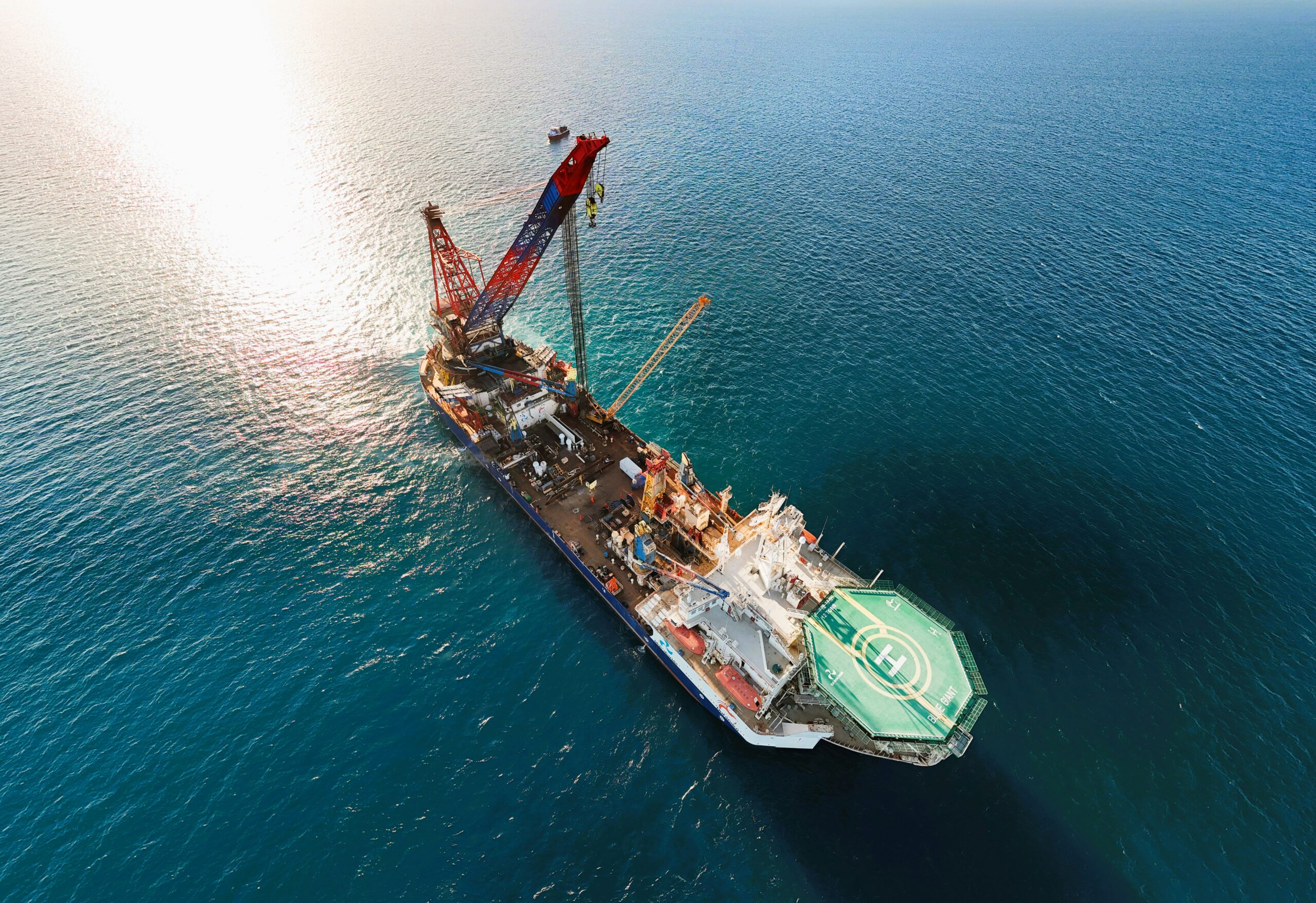Photo by J F
Norwegian energy giant Equinor has resubmitted its application to develop the Rosebank oil field with an assessment showing the project would generate nearly 250 million tonnes of CO₂ over 25 years, more than 50 times the original extraction emissions figure. The resubmission triggers a public consultation closing on 20th November, with the UK government facing what campaigners describe as a defining test of its climate credibility.
The Rosebank field, located approximately 80 miles north-west of Shetland, is the UK’s largest undeveloped oil field, estimated to contain up to 300 million barrels of oil and some gas. Developers of the field said nearly 250 million tonnes of planet-warming gas would be released from using oil products from the field. The amount would vary each year, but by comparison the UK’s annual emissions in 2024 were 371 million tonnes.
The project was originally approved in September 2023 by the Conservative government, but in January 2025 a court ruled that a more detailed assessment of the field’s environmental impact was required, taking into account the effect on climate of burning any fossil fuels extracted from it. A public consultation has now been opened and will run until 20th November 2025. The Energy Secretary will then decide whether to support granting consent for the project.
Equinor submitted its updated environmental assessment to the Offshore Petroleum Regulator for Environment and Decommissioning in late September. The developer said its emissions were “not significant” considering the UK’s international climate commitments, but opponents called it an “admission of the vast climate change damage” that the project will cause.
Until recently, such projects were only required to consider the impact from extracting fossil fuels. But in June 2024 the Supreme Court ruled that authorities must take account of the impact from also using the products, after a woman in Surrey challenged development of her local gas project. This ruling was then used in a further challenge to Rosebank by environmental campaigners Uplift and Greenpeace, which was successful in January.
Equinor was required to recalculate the “full impact” of the field and it now estimates it will contribute an additional 249 million tonnes of CO₂ over the next 25 years—more than 50 times greater than the original figure of 4.5 million tonnes it gave from extracting the oil and gas.
Publishing their figures, Equinor said: “The Assessment concludes that, whilst GHG emissions from the Rosebank Development are likely to occur, their magnitude is not significant when viewed in the context of international climate commitments.” However, it added that if global temperature rises were not kept below 2°C “the Rosebank Development, could significantly impact the climate due to its high sensitivity and cumulative effects”.
An Equinor spokesperson stated: “We remain fully committed to working closely with all relevant stakeholders to advance the Rosebank project. Rosebank is an important contributor to the UK’s energy security. It is a vital project for the UK economy and is already bringing benefits in terms of local investment and job creation.”
Climate and economic concerns
Greenpeace UK’s senior climate campaigner Paul Morozzo said the new figures were “a brazen admission … of the vast climate damage that would be caused from burning Rosebank’s oil and gas”.
Tessa Khan, executive director of Uplift, said Rosebank would be the test of the government’s credibility on climate change: “This enormous oil field is not consistent with the UK’s climate commitments. The world already has so much more oil than is safe to burn.”
Patrick Harvie, Scottish Green Party climate spokesperson, said: “It would be outrageous climate vandalism for the Government to let Rosebank go ahead. What Equinor is proposing would do untold damage to our environment and would do nothing to lower the amount that households are forking out to heat their homes.”
The fossil fuels for the Rosebank field are not guaranteed to be used in the UK but would be sold on the international market. As such, the project is unlikely to have an impact on lowering gas prices. The UK’s independent climate advisers said in 2022 that any more domestic oil and gas extraction would have “at most, a marginal effect on prices”.
However, Arne Gurtner, Equinor’s senior vice president for the UK, has previously said: “If the UK needs Rosebank oil, it will go to the UK through open market mechanisms.”
Economic analysis shows that approximately 90% of Rosebank’s output is oil expected to be sold on the global market. Analysis by WWF Norway indicates the UK government could face a net loss of over £250 million from the project under a base-case $70 per barrel oil price scenario, whilst primary owners Equinor and Ithaca Energy stand to gain £1.5 billion in profit. Due to generous tax breaks, the UK public would shoulder over 80% of development costs.
The project is expected to create approximately 2,000 jobs during construction and support 255 direct and 137 supply chain jobs on average over the field’s lifetime.
The UK has a target to produce no additional emissions by 2050 and Energy Secretary Ed Miliband has been vocal about the need to move away from fossil fuels. On Tuesday, he told an industry conference that the UK’s dependence on fossil fuels was its “Achilles’ heel” and argued clean power was the only way to reduce bills.
Campaigners at Fossil Free London are planning demonstrations outside the Department for Energy Security and Net Zero, with daily protests planned from 20th October until a final decision is made. The public consultation allows representations, comments or questions relating to the project to be submitted to the Secretary of State by 20th November 2025.
The decision represents a critical juncture for UK climate policy, with the project’s approval or rejection likely to signal the government’s approach to balancing energy security concerns with climate commitments ahead of the UK’s 2050 net zero target.
